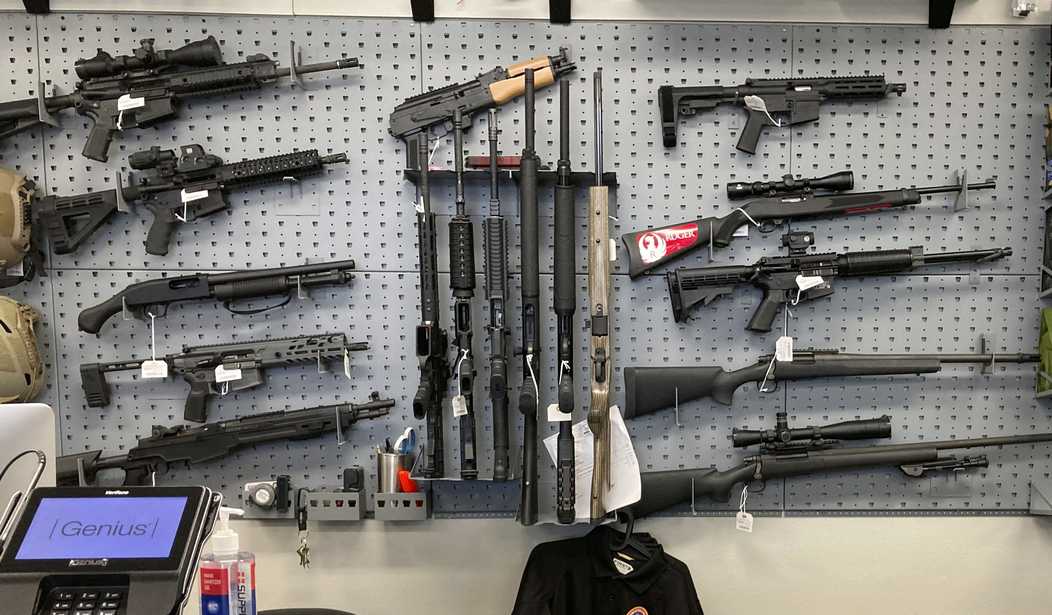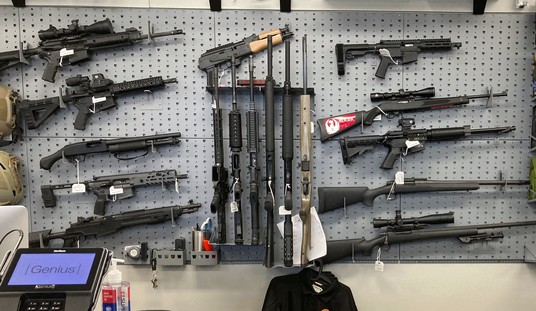The Biden administration has already publicly announced that the ATF is drafting a new rule expanding the definition of who is “engaged in the business” of selling firearms, but a watchdog group says the agency has drafted a 1,300-page document “to justify a rule effectively banning the private sale of firearms
Empower Oversight president Tristan Leavitt posted a lengthy thread on X.com today outlining what he says he’s learned through whistleblowers at the ATF. Much of this is already public knowledge based on the ATF’s proposed rule published last September, but Leavitt did provide some new, if unconfirmed info.
Such a sweeping rule with the effect of banning private sales would clearly violate the Second Amendment to the United States Constitution, which declares that “the right of the people to keep and bear Arms, shall not be infringed.”
— Tristan Leavitt (@tristanleavitt) January 31, 2024
The ATF previously announced the proposed rule change back in September, and the public comment period closed in early December, after nearly 400,000 comments had been submitted. It’s still not perfectly clear if the whistleblowers that Leavitt describes are talking about the final draft of that proposed rule or something else entirely, but additional information found on Empower Oversight’s website indicates it’s the former.
The Bureau of Alcohol, Tobacco, Firearms and Explosives (“ATF”) subsequently submitted a proposed rulemaking to the Department of Justice, which Attorney General Merrick Garland approved on August 30, 2023.[3] The draft rule was open for comments from September 8 to December 8, 2023.[4] The draft rule received immense comment and was interpreted by many to require that any private citizen who sells even a single firearm online might be required to register as an FFL[5]—despite clear language in law since 1986 that the term “engaged in the business” of selling firearms “shall not include a person who makes occasional sales, exchanges, or purchases of firearms for the enhancement of a personal collection or for a hobby, or who sells all or part of his personal collection of firearms.”[6]
Empower Oversight has now learned through two sources in the ATF that at the direction of the White House, the ATF has drafted a 1,300-page document in support of a rule that would effectively ban private sales of firearms from one citizen to another by requiring background checks for every sale. The document’s drafting is reportedly being overseen by Senior Policy Counsel Eric Epstein, who worked as the Phoenix Field Office’s Division Counsel during Operation Wide Receiver (a precursor of Operation Fast and Furious).
Such an expansive rule that treats all private citizens the same as federal firearms licensees would circumvent the separation of powers in the Constitution, which grants “all legislative Powers” to Congress while requiring that the President “take Care that the Laws be faithfully executed.” To the extent such a rule prevents the private sale of firearms, it would also clearly violate the Second Amendment to the United States Constitution, which declares that “the right of the people to keep and bear Arms, shall not be infringed.”
…
In order to shed light on the drafting of this unconstitutional measure, Empower Oversight requests the following records, for the period from January 1, 2023 to the present, pursuant to the Freedom of Information Act (“FOIA”), 5 U.S.C. § 552:
- All emails to or from ATF Senior Policy Counsel Eric Epstein which include the terms “ban,” “private sale,” “universal background,” and “gun control.”
- Any and all records containing communications between DOJ and ATF regarding the implementation of Executive Order 14092.
- Any and all records containing communications between DOJ or ATF and the White House regarding the development and/or implementation of Executive Order 14092.
- Any and all records containing communications between DOJ and ATF referring or relating to regulating or banning the sale of firearms between private individuals.
- Any and all records containing communications between DOJ or ATF and the White House referring or relating to regulating or banning the sale of firearms between private individuals.
If the final rule really is 1,300 pages, that would be substantially different than the proposed rule presented for public comment, which took a little more than 30 pages of the Federal Register. But even the draft that was available for public comment goes far beyond the ATF’s statutory authority, according to the groups like the National Shooting Sports Foundation, which submitted a 28-page comment taking apart the proposal piece-by-piece. Here’s just a small portion of what they had to say:
The Proposed Rule exceeds ATF’s limited authority to adopt regulations. In enacting the Gun Control Act of 1968, Congress rejected making a violation of a regulation a crime. In enacting the Firearm Owner’s Protection Act of 1986, Congress further reduced ATF’s regulatory power. The specificity of authorized regulations negates a broad power.
ATF has no authority to “improve” on what Congress enacted or to create new crimes not enacted by Congress. An agency may not re-write statutory terms or fill in what the agency considers to be “gaps” or “loopholes” in the statute. The GCA is a criminal statute, and ATF’s reading is not entitled to any deference. Given that the GCA is a criminal statute with the same meaning in a civil context, ATF may not create presumptions thereon for civil or administrative purposes.
This Proposed Rule is an outgrowth of President Biden’s March 2023 Executive Order. The White House’s announcement stated the goal of the Executive Order was to increase “the number of background checks conducted before firearm sales, moving the U.S. as close to universal background checks as possible without additional legislation. ” …. “Specifically, the President is directing the Attorney General to move the U.S. as close to universal background checks as possible without additional legislation by clarifying, as appropriate, the statutory definition of who is “engaged in the business” of dealing in firearms, as updated by the Bipartisan Safer Communities Act.” But Congress rejected so-called “Universal Background Checks” in 2013.
Under the proposed rule, even the sale of one firearm (or merely the offer of a sale) could lead someone to be “engaged in the business” according to the ATF, which could indeed require the vast majority of person-to-person transfers to either go through a background check or require the seller to be a licensed FFL. This isn’t exactly breaking news, though I suspect that Leavitt’s tweet may have been the first that many non-gun owners have heard about it.
If Biden wants to go big on another announced executive action ahead of Election Day, I still think the most likely possibility is a rule designating some or all semi-automatic firearms as “readily convertible” to machine guns, which would place them under the auspices of the National Firearms Act. Gun control activists have been pushing for the administration to take that step for some time now, and trying to impose a semi-auto ban without a vote by Congress would certainly energize anti-gunners, especially if it would require Biden’s re-election to take effect given the length of time it takes for a proposed rule to be enacted. Something like that would also give gun owners a very important reason to head to the polls and vote for Biden’s opponent, and I think it would be a dumb move by Biden’s handlers given the likelihood that it would motivate more of his opponents than supporters.
Then again, the same could be said for the “engaged in the business” rule that’s already being drafted, and Biden has shown no hesitation at all about putting that in place. Even though some of the particulars may still be vague and fuzzy, it’s clear that going after lawful gun owners, gunmakers, FFLs, and our right to keep and bear arms is going to be one of the centerpieces of the Biden campaign between now and November.









